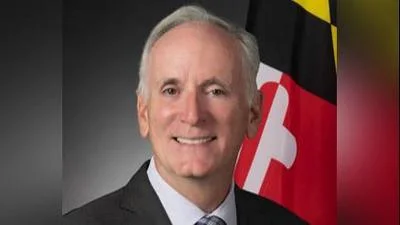Julianna Rauf Grassroots Manager | Official Website
Julianna Rauf Grassroots Manager | Official Website
April 10 marked the conclusion of the 445th session of the Maryland General Assembly. This year saw new legislative members and an administration that brought both challenges and opportunities for businesses in the state. The Senate and House committees resumed in-person hearings, reflecting a return to pre-pandemic activity levels in Annapolis.
The National Federation of Independent Business (NFIB) was involved with numerous bills during this legislative session. Several recurring issues reappeared as separate bills, including labor and insurance matters affecting small businesses. NFIB emphasized the importance of member engagement on these topics to influence the outcome of these legislative measures.
Mike O’Halloran, NFIB State Director, highlighted several key pieces of legislation:
SB555 – Fair Wage Act of 2023: This bill passed as amended and was Governor Moore’s top legislative priority. It accelerates the minimum wage to $15 for all employers by January 1, 2024, removing the Consumer Price Index attachment for future increases and delaying acceleration from October 1, 2023, to January 1, 2024.
SB828 – FMLI Modifications: Also passed as amended, this technical bill creates a Family Medical Leave Insurance program following last year's framework legislation. Key provisions include a 2% cap on employee wage deductions and a payroll tax split equally between employees and employers. Employers with fewer than 15 employees are exempt from contributing their portion. The Department of Labor will manage applications, determinations, appeals, etc., with contributions starting on October 1, 2024, and benefit payments beginning January 1, 2026.
HB724/SB670 – Unemployment Insurance Modernization Act: This bill failed to pass. It aimed to increase employee benefits and employer taxable wages while generally increasing income disregard and dependent allowance.
HB349/SB345 – Maryland Fair Scheduling Act: This proposed legislation also failed. It targeted restaurants and retailers with at least ten establishments nationwide by requiring them to pay employees a minimum number of hours per shift if they report to work but are required to work fewer hours than scheduled.
HB1256/SB803 – Payment of Minimum Wage – Tipped Employees: Another failed bill intended to phase out the state's tip credit by July 1, 2027.
HB551/SB547 – Office of Statewide Broadband – Study of Broadband Expansion Incentives: HB551 passed as amended. Initially intended to exempt broadband equipment from state sales tax; it now requires state agencies to conduct a study making recommendations for broadband incentives.
For more information on these or other legislative items, interested parties can contact Mike O’Halloran at NFIB.


 Alerts Sign-up
Alerts Sign-up